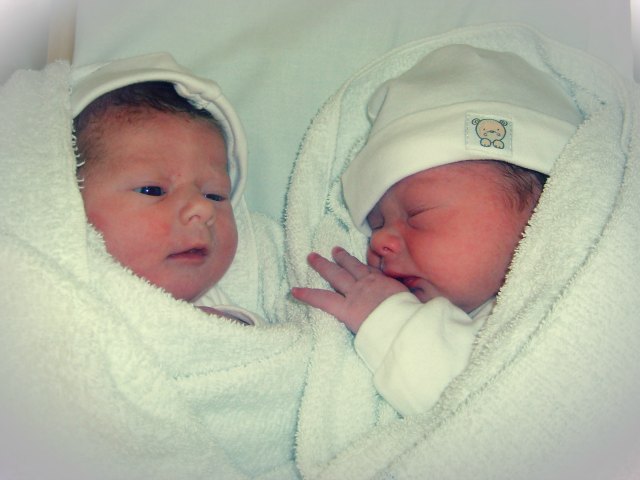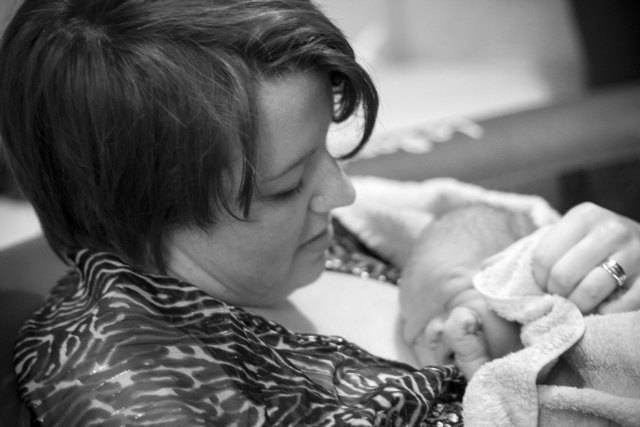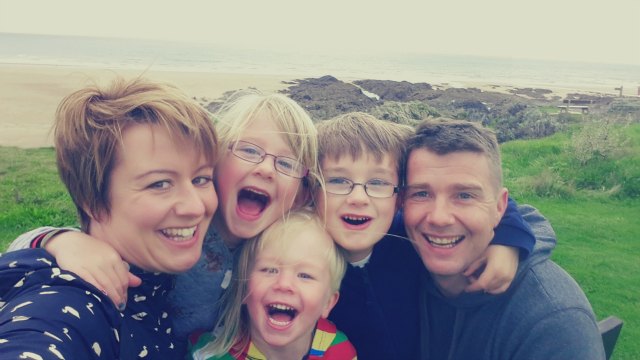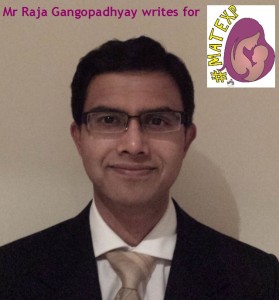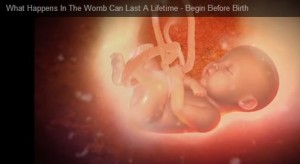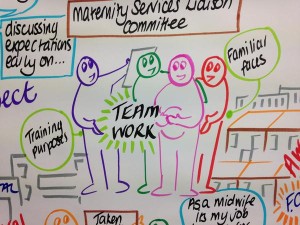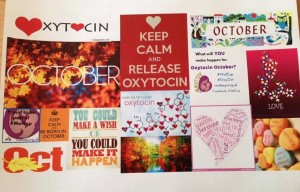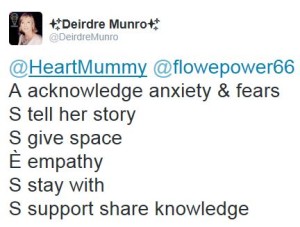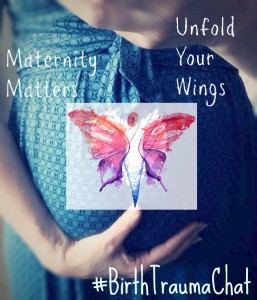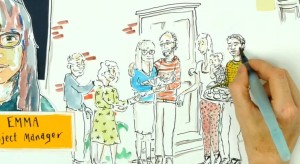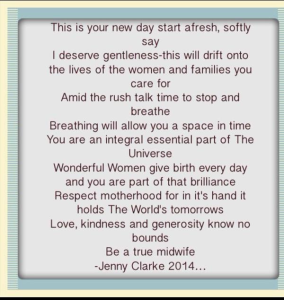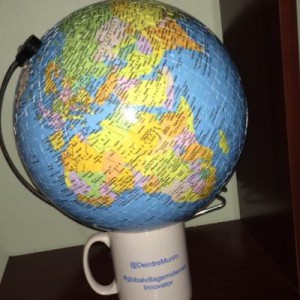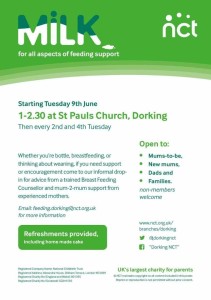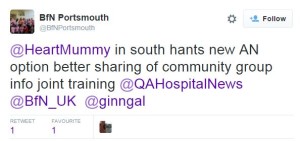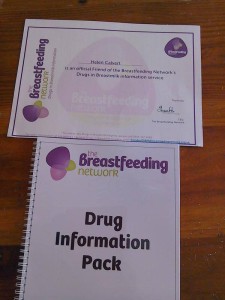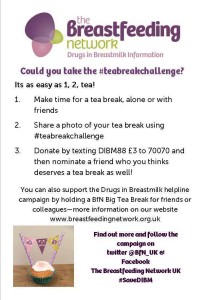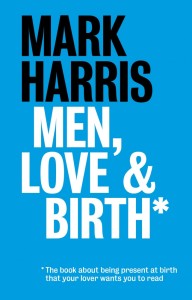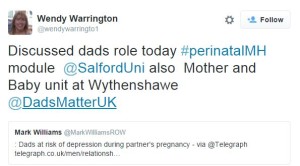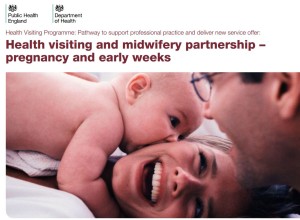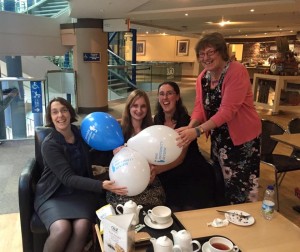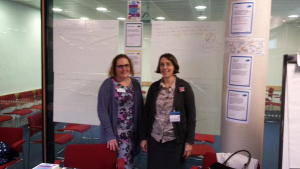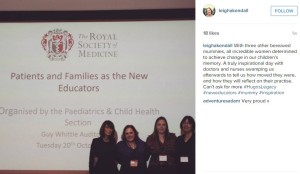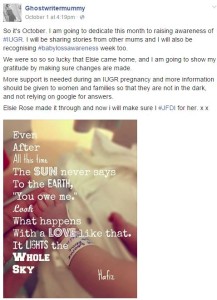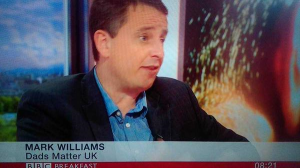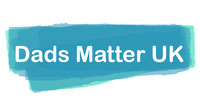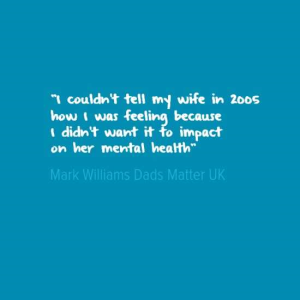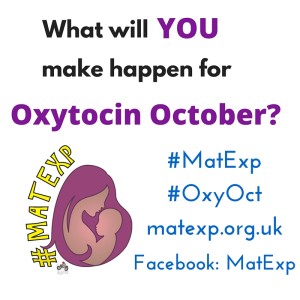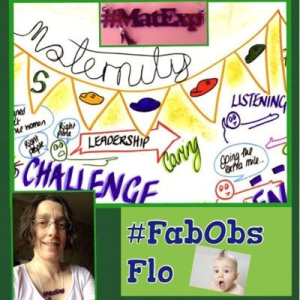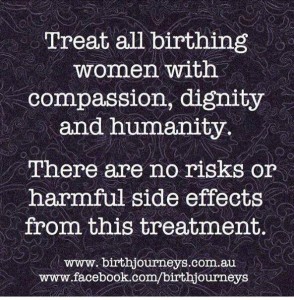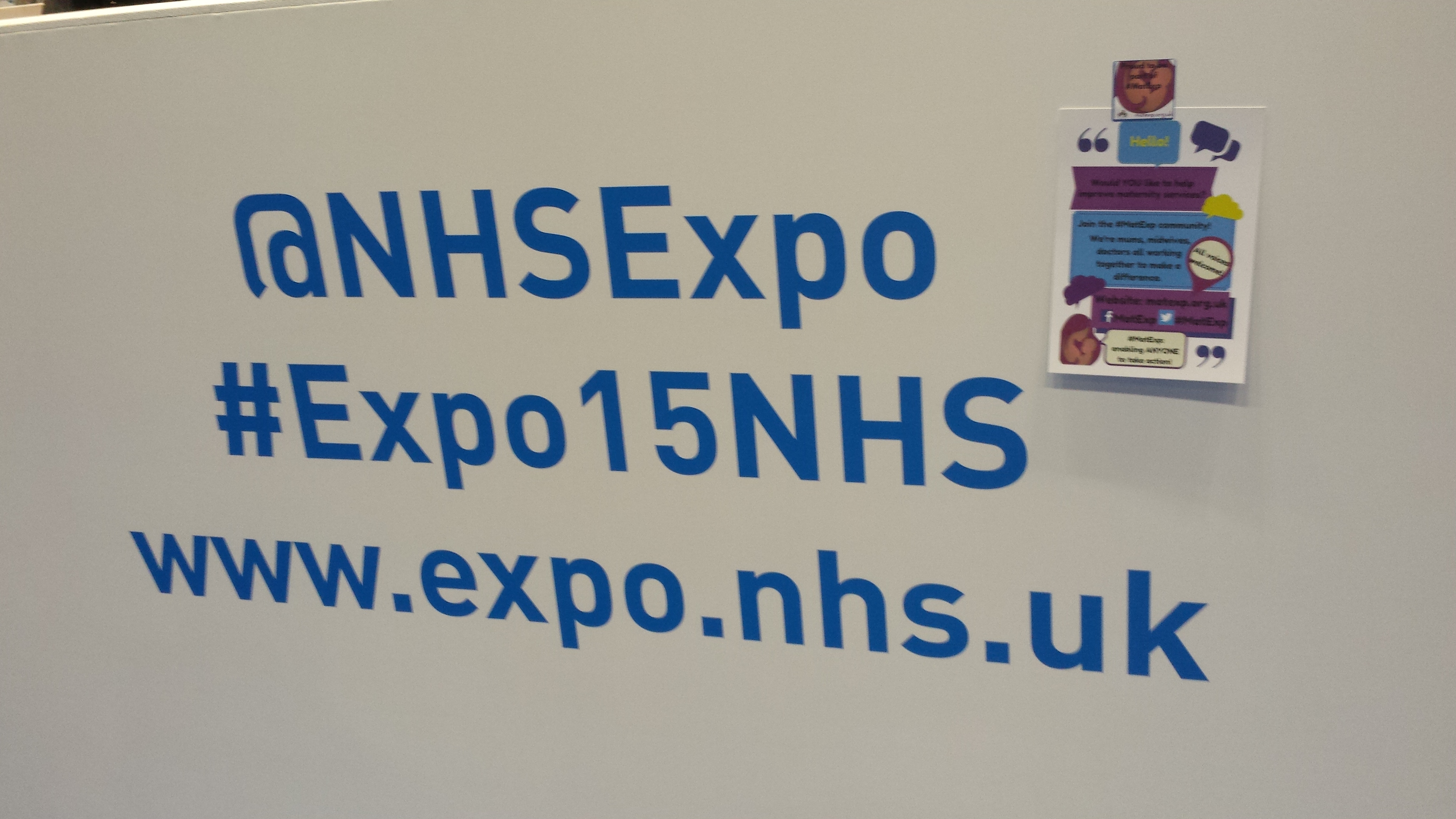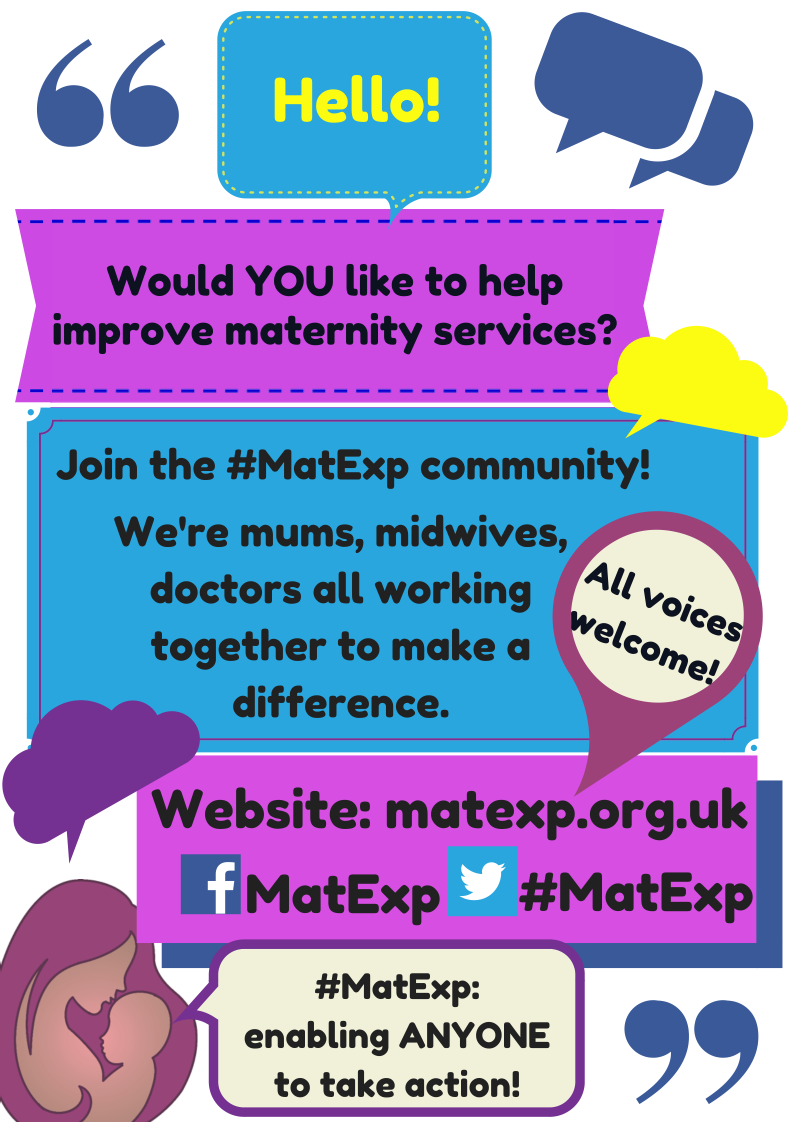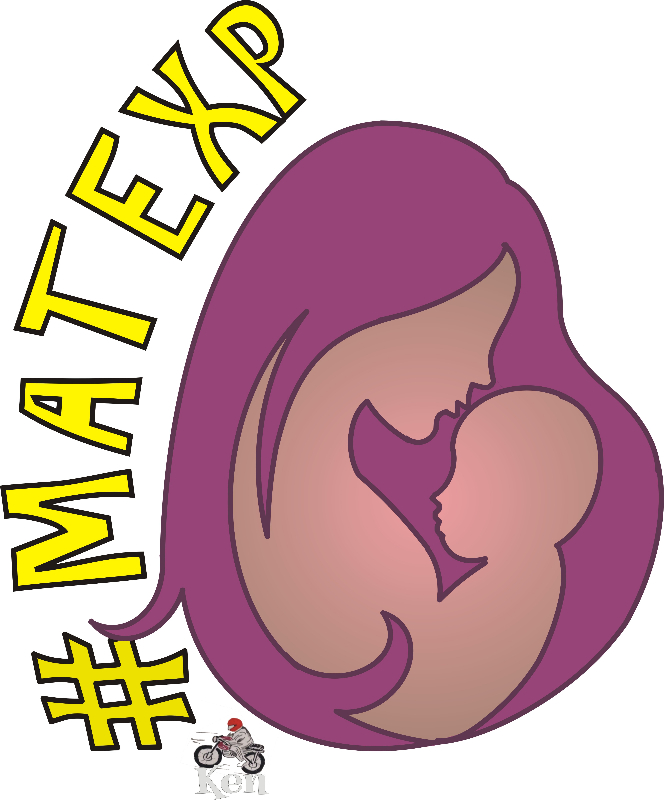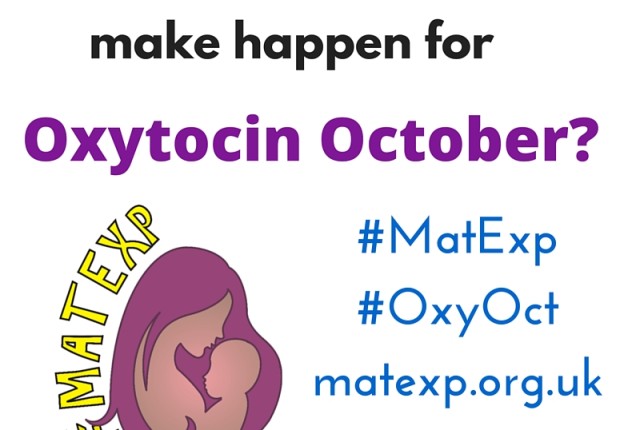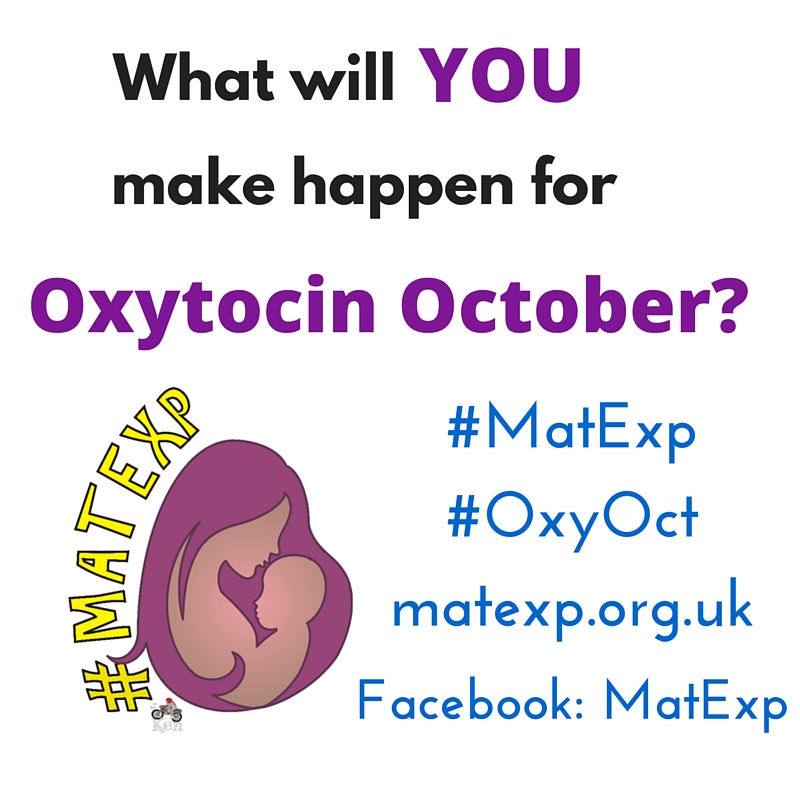I have great pleasure in introducing a guest blog from Kirsty Sharrock, a.k.a. SouthwarkBelle. Kirsty is mum to two girls and lives in London. Her other day job involves biological samples, powerful lasers and badly fitting lab coats. When her first child was born in 2009 she became fascinated, and often infuriated, by the amount of misleading information aimed at new parents. Her response was the SouthwarkBelle blog where she tries to make sense of some of the dubious science or at least have a good rant about it.
Thank you so much to Kirsty for writing for us on the topic of Induction of Labour.

It’s a well known fact of modern childbirth: Inducing labour sets off a chain of other interventions which often result in an emergency caesarean.
But is this actually true?
Would you be surprised if I said it’s not? I certainly was. The idea goes against so much that I had heard from other women and from midwives, my antenatal teacher and of course the internet.
When I went overdue with my first baby I dreaded being induced. I’d heard nothing but horror stories saying it was entirely awful and unnecessary, it would almost certainly make the birth more painful and complicated and would probably set off a “cascade of interventions” leading, with grim inevitability, to the one thing I was most afraid off – an emergency Caesarean. It would also completely scupper my plans for a natural birth in a midwife led unit. But at the same time I was MASSIVE, it was August, and hot, I was desperate to meet my baby and had had quite enough of being pregnant. So I agreed to book an induction, then did everything I could think of to make that booking unnecessary. In the event I got my wish, sort of.
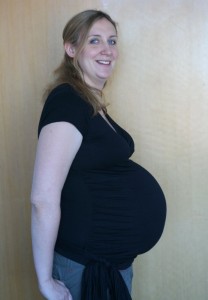
So was I right to fear the induction?
It seems the answer to that is no.
A 2014 study showed that being induced doesn’t increase the likelihood of having a caesarean. In fact women who were induced at term or when overdue were 12% LESS likely to have a C section than those who hung on for nature to do her thing. Their babies were also less likely to be stillborn or admitted to the NICU.
But can we believe this study?
We often see piles of scientific “evidence” that contradict each other. One minute coffee causes cancer the next it cures it etc. etc. so how reliable is this publication, given that it goes so strongly against the generally accepted view?
In this case the authors of the paper didn’t set up their own experiment or trial. Instead they did what is known as a meta-analysis. This is important because a meta-analysis is far more reliable than most of the scientific studies that make it into the media. The authors took the data from 157 different trials and did some serious number crunching. Looking not just at the results of those trials but at their weaknesses too. For example, many of the individual trials were pretty small, meaning their results are less reliable than bigger studies. Others were quite old or asked slightly different questions to the rest. But this variation is the whole point of a meta-analysis. By putting it all together it’s possible to overcome many of the errors and biases that inevitably influence the results of individual studies and to find a more reliable consensus.
We rarely get perfect answers in anything associated with biology. For obvious ethical and practical reasons we can’t do loads of enormous, randomly controlled trials to answer questions about human childbirth. So a meta-analysis, although still imperfect, is about as good as it gets.
But how can it be true when it contradicts so many people’s experiences?
This is the really tricky part. These results fly in the face of something many of us have learned to be true: In the experience of many women, midwives, etc. inductions tend to end in C sections. As yet I don’t know of any scientific studies to explain this difference, but if we step away from numbers and statistics for a moment, there are a few, very human, possibilities:
Relying on personal experiences is tricky. We’re all inclined to notice and trust things that confirm our existing beliefs. That’s just human nature, and it happens to everyone (I’ve known a few, usually logical, scientists get carried away over flimsy results that fit their current theory). In this case perhaps midwives and doctors who expect inductions to end in c sections are just a little more likely to remember the ones that do. Those births may also stick in the mind more than the less eventful, straight forward ones.
A similar thing can also happen with women’s own experiences. Even with everything seemingly perfect, births don’t always go to plan. Difficult births happen and sometimes they happen after an induction. If a woman has heard many times that inductions cause c sections, then it’s only natural to assume the induction was to blame if she does end up in theatre. Maybe that was the cause, but there is no way to be completely sure that the same things wouldn’t have happened with a spontaneous labour.
There is also the risk of self-fulfilling prophecies. It’s possible that some women are ending up in theatre just a little earlier than they need to because they, or those caring for them, suspected it was inevitable. Perhaps most importantly, there is the issue of fear. It is thought that fear can be a big cause of problems in childbirth. If a women is induced, and terrified of the procedure and what she’s been told it will lead to, then it could be the fear itself which causes the problems.
So should every woman be induced at full term?
What this study doesn’t do is prove that all women should be induced the second they hit 40 weeks.
There are many reasons why a woman may decide to delay or refuse an induction. I went into labour naturally but still ended up having some of the interventions that can be used in an induction and I found them pretty unpleasant. Every woman and every birth is different and each comes with a unique set of considerations. Meta-analysis and big data sets give us a clearer and more objective view of the big picture but they can’t say what is right or wrong for any individual mother. That choice must be hers and to make it women need good, evidence based information and often help from skilled, knowledgeable, health care professionals.
This paper also doesn’t give us is a very clear picture of just how likely it is that an individual induction will prevent a c section, still birth or NICU admission. What I hope we will see in the future is more user friendly data. Every women will have their own tipping point for where the numbers add up to choosing induction.
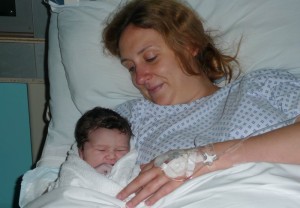
So what now?
Like many pregnant women I was taught to fear induction of labour and the cascade of interventions it would cause. Now it seems that fear was based on a myth. So it’s important that the evidence, challenging though it may feel, gets out to pregnant women and to those giving them advice. Unnecessary fear in childbirth is potentially harmful and certainly unfair. All the more so for those women who feel they have little choice but to be induced for urgent medical reasons.
This study also has implication beyond individual decisions. There is often a binary division of births. On one side the “low risk”, “normal” births that can be handled entirely by midwives and on the other “high risk” births, which are, effectively, everything else. Being induced can push an otherwise low risk woman over that line.
In the hospital where I gave birth this made a big difference. The Midwife led unit didn’t just have lower all round intervention rates, it also housed built in birthing pools and lovely en-suite rooms where mum, dad and baby could recover together after the birth. If I’d been induced I wouldn’t have been allowed on this unit. So, in choosing weather to be induced or not, I wasn’t just weighing up the risks of induction v continued pregnancy. I was also deciding if I should risk higher intervention rates, sacrifice the more welcoming facilities and deny my husband the opportunity to share the first precious hours of his child’s life. Now we have strong evidence that induction can reduce C section rates and in some cases save lives, should it really be the determining factor in where some women can give birth? Or in the standard of care they receive?
For me, spontaneous labour didn’t prevent an emergency C section. Perhaps I’d have stayed out of surgery if I had been induced? I doubt it, although I’ll never know for sure. But I can be glad that when other new mums are overdue, concerned about their baby’s health or just hot, heavy and sick of being pregnant, the myth of induction-cascade-caesarean section will be one less thing to fear.
Kirsty Sharrock / SouthwarkBelle
2015
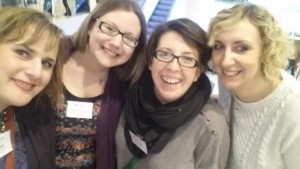
A version of this blog first appeared on the SouthwarkBelle website: http://www.southwarkbelle.blogspot.co.uk/2014/09/induction-cascade-caesarean-section.html




